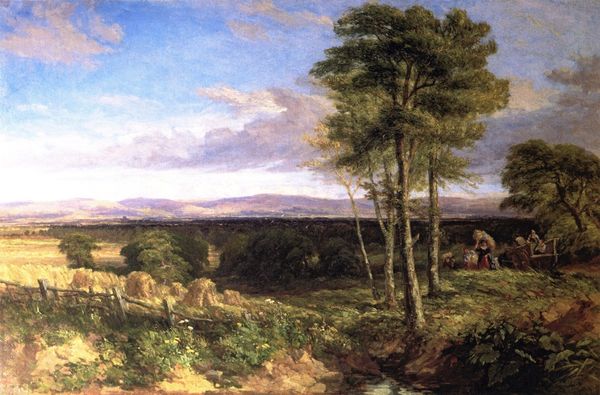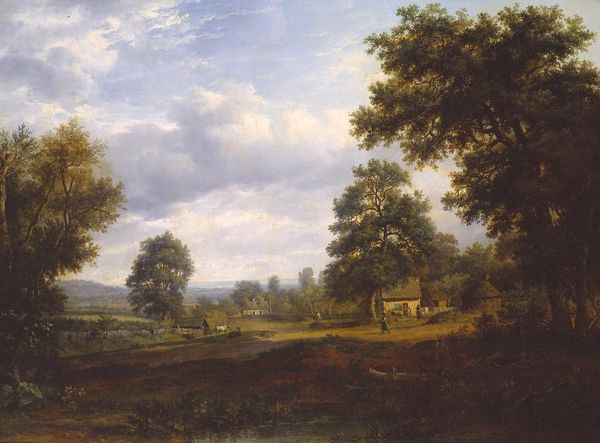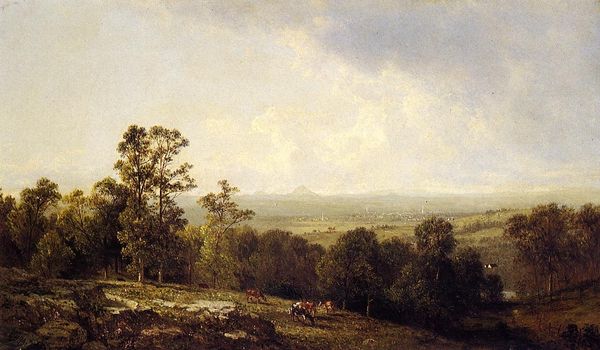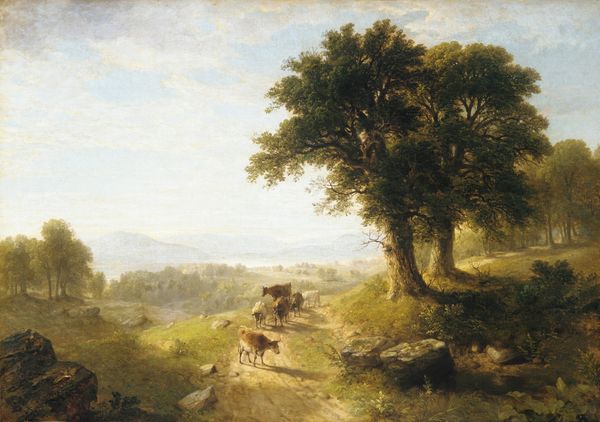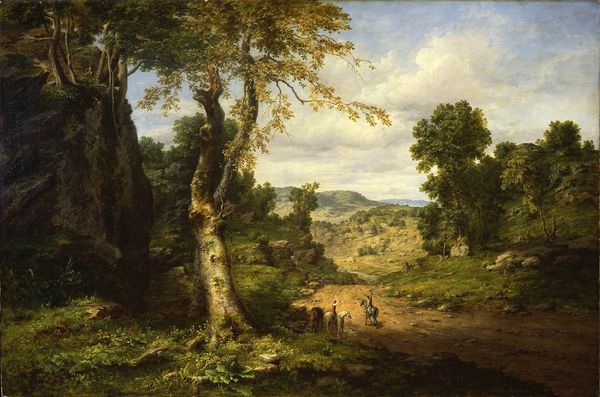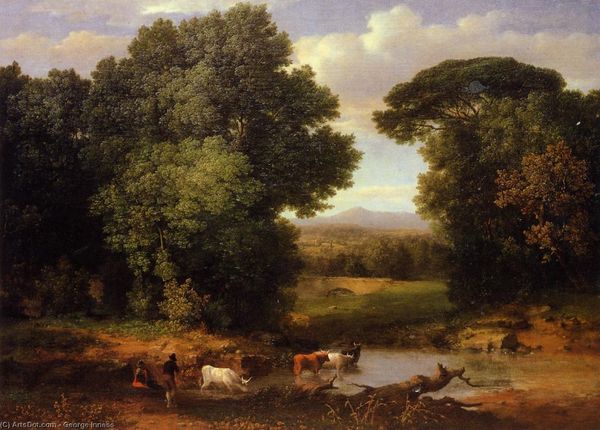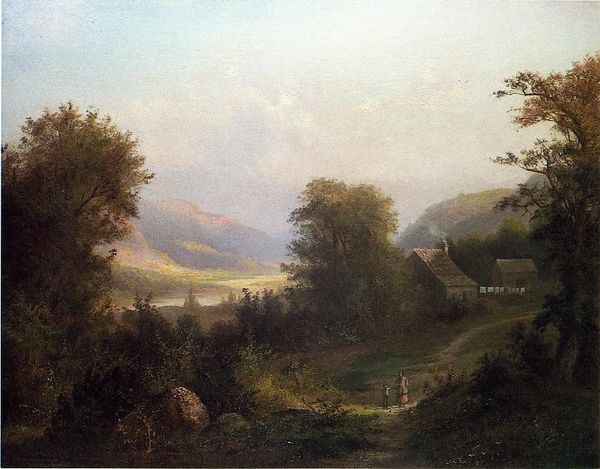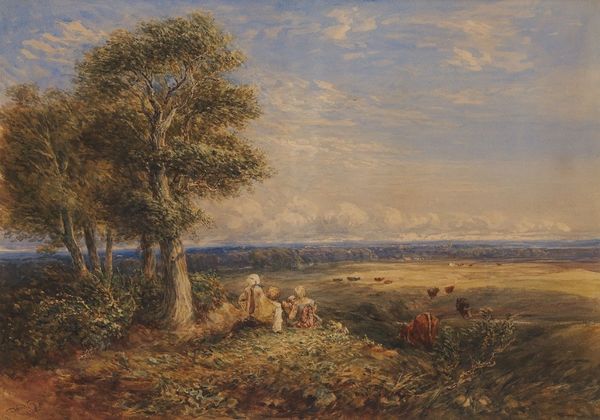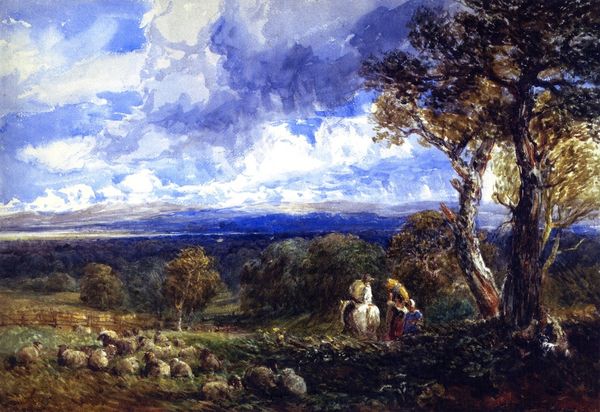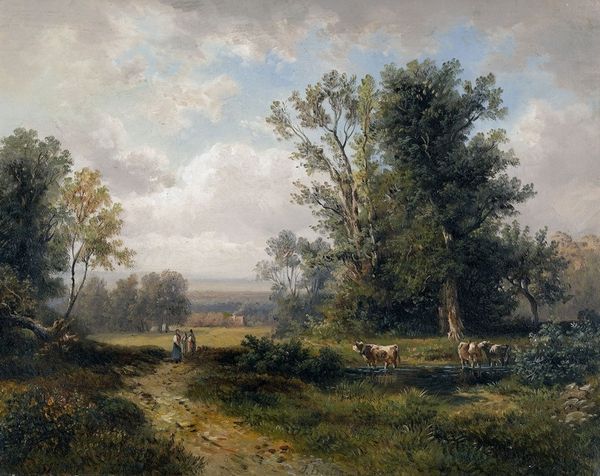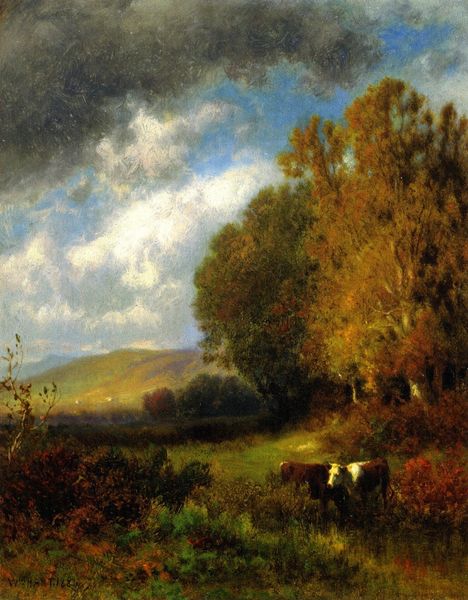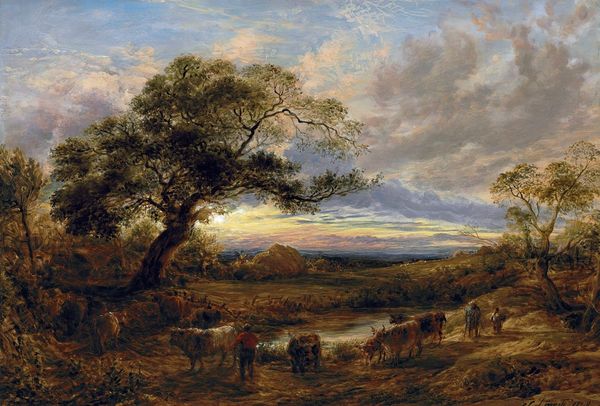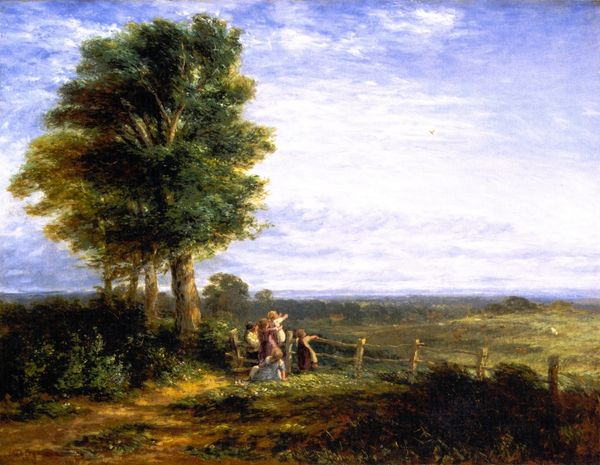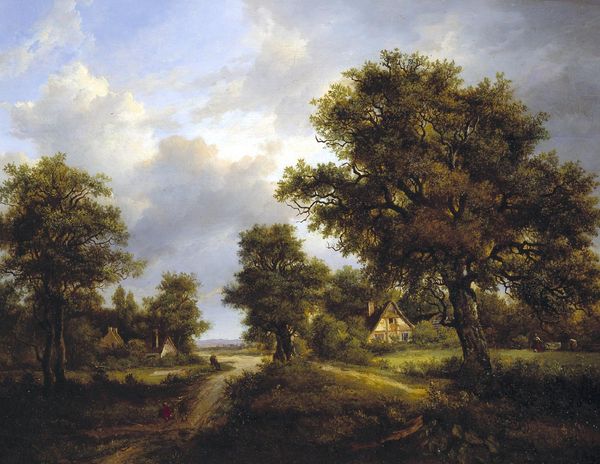
painting, plein-air, oil-paint
#
tree
#
sky
#
rural-area
#
painting
#
grass
#
plein-air
#
oil-paint
#
landscape
#
nature
#
oil painting
#
romanticism
#
genre-painting
#
watercolor
#
realism
Copyright: Public domain
Editor: This is David Cox’s "Vale of Clwyd," painted in 1849 using oil paint. I’m immediately struck by its sense of pastoral calm and the depiction of everyday rural life. What stands out to you, especially considering its historical context? Curator: The painting encapsulates the Victorian idealization of the countryside. However, beyond the surface of pastoral tranquility, we can delve into the socio-political dynamics. Consider the Enclosure Acts which drastically altered land ownership and use. How might this painting, with its seemingly idyllic depiction of shepherding, participate in or obscure those realities? Editor: That's a fascinating point. So, is Cox potentially romanticizing a changing rural landscape to appeal to a specific audience or to avoid potentially politically loaded messaging? Curator: Precisely! His patrons likely belonged to a rising urban middle class, and that group idealized the countryside as a respite from industrialization. Furthermore, exhibiting landscapes at venues like the Royal Academy also played a crucial role. What effect do you think showing landscapes would have had on an urban audience hungry for views of unspoiled land? Editor: I suppose it might offer them an idealized image, reinforcing a specific vision of rural Britain. This selective representation of landscapes possibly strengthened particular societal views and power structures. Curator: Exactly. Landscape paintings, far from being innocent representations of nature, are deeply intertwined with social and economic factors. Now, reflecting on Cox, we should question how museums play a role in sustaining, or perhaps challenging these depictions. Editor: It's eye-opening to view "Vale of Clwyd" not just as a beautiful scene, but as a cultural artifact that reflects and shapes perceptions. Thanks! Curator: Indeed. Analyzing these works illuminates how art, culture, and socio-political powers intricately work together. Thank you.
Comments
No comments
Be the first to comment and join the conversation on the ultimate creative platform.
